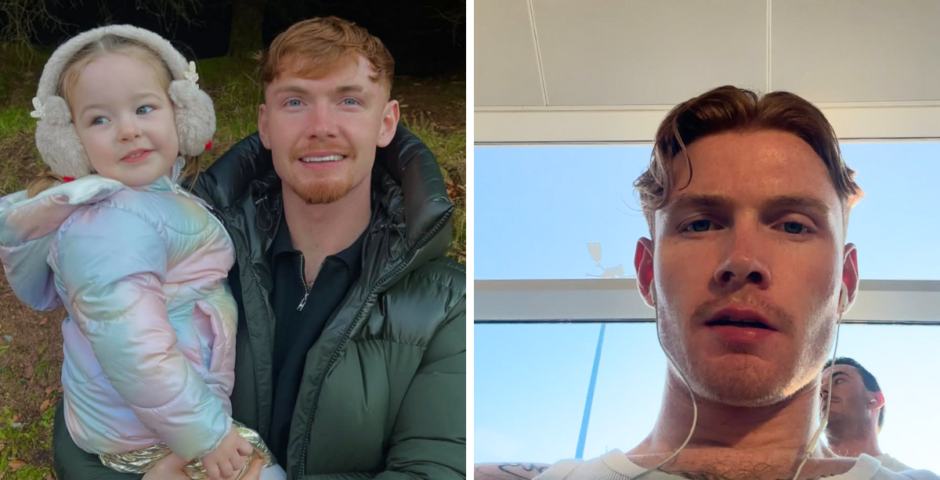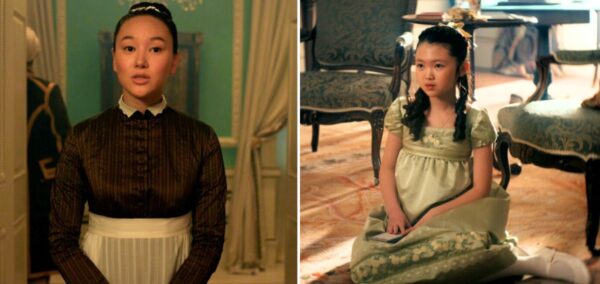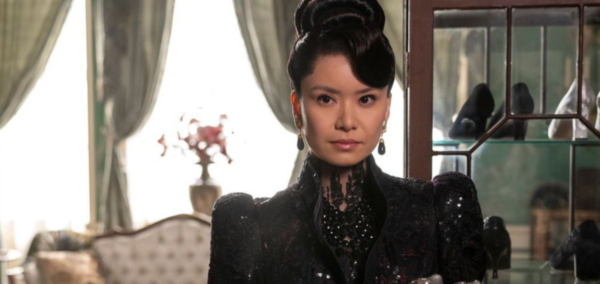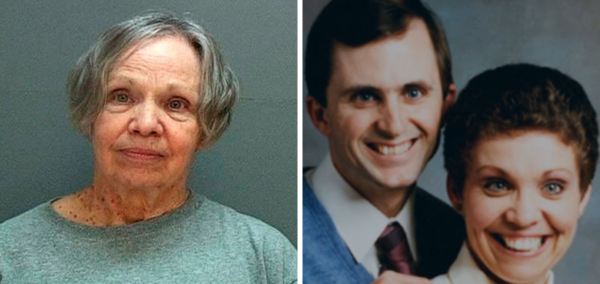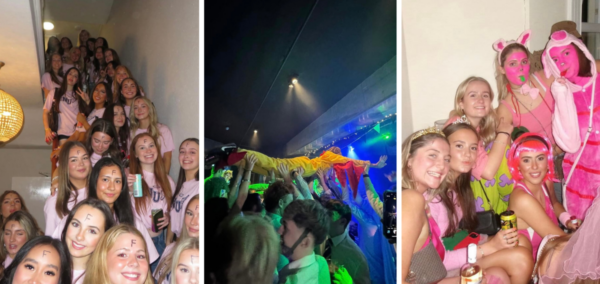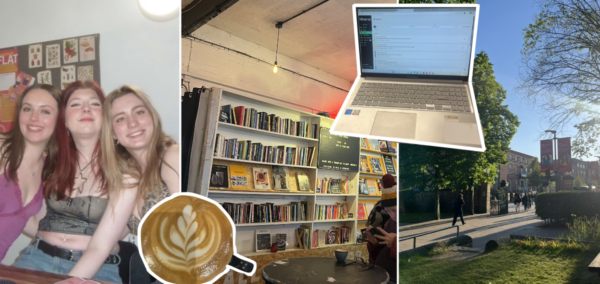
In conversation with Naga Munchetty: From medical misogyny to her time as a Leeds student
The Leeds Tab spoke to Naga about her new debut book and her time as a student in Leeds
Since her time as an English literature and language student at the University of Leeds, Naga Munchetty has seen an incredibly successful career in journalism.
This month she returned to the university to discuss the detrimental dangers of medical misogyny, an important and personal topic to Naga, and ahead of the release of her debut book, It’s Probably Nothing: Critical Conversations on the Women’s Health Crisis.
I spoke to the BBC journalist about everything from her thoughts on these growing issues in the medical world and her upcoming book, to her time as a student at Leeds.
‘Everyone used to pile into my room to watch the cricket’

Speaking to Naga about being back in the city she studied in for her degree, I wanted to know how it felt to be back on her old university campus. She described how she hasn’t been back in Yorkshire for a while, but said that old memories returned after she stepped foot back on campus.
“As I walked in, I remembered the English building used to be around the corner. I remember going there for my seminars,” she told The Leeds Tab.
“But the last time I came back was a couple of years ago when we went to see the cricket at Headingley. I used to live on Headingley Mount so from my room, I used to be able to see the cricket grounds.
“Everyone used to pile into my room to watch the cricket so it’s quite nice seeing Leeds again, but I haven’t been back for ages.”
Upon asking what her favourite place as a student was she reminisced about “a place called The Underground where they used to have a brilliant Motown night on a Wednesday.”
Most Read
Naga also spent her days as a student working at a shop called Etam and a bar called Zack’s: “It was a cocktail bar, so I learnt to flare cocktails and I worked there on a Friday and Saturday night.”
She also commented on the shops which held a significant space in her memory.
“We were of the days when Vivienne Westwood first had her store here and Paul Cox. And there’s the area with really posh shops and I just remember that was the first time I’d seen really posh shops.”
On her own health conditions, Naga said ‘it took 32 years for me to get diagnosed’
Naga returned to Leeds to discuss the topics in her upcoming book. Upon asking her what inspired her writing she said: “I have a condition called adenomyosis which is when the lining of the uterus grows into the walls of the uterus, and it can go beyond.
“I never knew I had it. I suffered with really heavy period pain, passing out in the first two days and throwing up. For the first few days of my period, I would have to set an alarm every three hours at night, and I’d sleep on a towel. I was throwing up, passing out, screaming, not sleeping, cramped up, curled in ball and sleeping on the floor to try get more comfortable because I couldn’t get comfortable in bed.
“I overloaded with painkillers and was just told, ‘Oh, it’s normal’. It took 32 years for me to get diagnosed.”
Asking Naga how she felt after being diagnosed with adenomyosis, she replied: “It’s not easy to identify. It was very confusing for me. I’m very much like, ‘Okay, that’s happening, how do we fix it?’. But there’s no easy fix and I found it very frustrating.
“So, it doesn’t mean the condition doesn’t exist, it means the symptoms are suppressed so they could be getting worse, which is what happened for me because my body was still being torn apart by the endometrium that was flying around in it.
“You have to make decisions and they’re very difficult decisions.
“So, yeah, I’ve got a name to it. But what are you going to do about it?”
She also acknowledged her own discomfort in speaking out about these issues: “It wasn’t comfortable because as a journalist you’re not the story, you’re getting other people’s stories. But what I realised is that women are going through the same things, but we’re taught to not speak about it. We’re taught to suck it up and put up with it.
“When I spoke about adenomyosis we realised that on the NHS England page there was one mention of it and the link was straight to hysterectomy. It was like, ‘What on earth is going on?’. So that’s changed, the website was updated. But it’s about there not being enough information out there and women not feeling comfortable and empowered.
“This is just not good enough. I’d say my M.O. is to be quite feisty and quite angry, but it certainly ramped that up.”
‘There is medical misogyny. It’s a fact’
Upon being asked if society’s subconsciously inherent misogyny is the root of these problems or if it’s something more than that, Naga asked: “Isn’t that enough that there’s an inherent misogyny?”
“The Parliamentary Women and equalities committee report to Women’s Reproductive Health last year found that there is medical misogyny. It’s a fact.
“We as we women in particular, we crack on. We’re busy, we have loads of responsibilities, we put others before ourselves even though we’re fighting to be brilliant in our jobs, brilliant in our home lives, brilliant friends. But I think many of us don’t put ourselves first enough.”
Discussing how pain management should be dealt with on a case by case basis, Naga explained how “we should be asked how it’s affecting your life”, rather than rely on a typical one to 10 pain scale: “I blame myself as well for not articulating that— partly because I was embarrassed. I thought I was being overdramatic.
“I thought, ‘well other women have periods, they’re not making as much of a fuss, surely we’re all the same’. We need to be asked different questions because that’s what we do with mental health.”
‘Don’t be afraid to speak up’

In advance of It’s Probably Nothing, soon to be published this May, we asked Naga what one key takeaway she hopes readers will be left with.
She stressed the importance of voicing concerns and speaking about difficulties should they arise: “Speak up. If it doesn’t feel right, you know your body better than anyone else. Take responsibility for knowing your body so when you do see a specialist or medic you can tell them I know this is not right.
“No one’s saying you have to know the encyclopaedia of medicine, but you do have to know yourself. The system is such that we get ten-minute appointments at the GP. You can’t expect them to know your life history. You have to go in prepared.”
And with Naga returning to campus to spread awareness of these problems, The Leeds Tab asked what students in particular can do to help push for change.
“I think we’re better at talking about mental health. We’re better at ‘are you okay?’. I don’t think we’re good at saying, ‘how are your periods?’. It sounds like a really odd question to ask but if you ask people will tell you.
“For years I didn’t know my periods were abnormal. I didn’t know that the shooting pain you can get up your rectum and the unbelievable cramps where you’re doubled over and covered in sweat and you’re throwing up, wasn’t normal.
“I didn’t have anyone to talk to. We need to speak up more.”
‘Gone are the days where you have to fit in’

Finally, with many aspiring journalists across Leeds universities, The Leeds Tab asked Naga what advice she would offer to students hoping to break into the industry.
“I think it’s harder than ever. Trainee schemes are few and far between. But what I think any student should sell about themselves is their difference. Gone are the days where you have to fit in.
“You will know something and you are living a life that I have no idea about, I have no idea what it’s like to be a woman of your age in this time with social media, with AI, with how relationships work, how your view of politics works, if you’re being heard.
“So when you sell yourself as a journalist, sell your perspective because your perspective is what no one else has. It’s individual. Sell that and have faith. Develop what your perspective is and know who you are. As a journalist, you are never the story but your perspective to a story will offer people insights.”


It’s Probably Nothing: Critical Conversations on the Women’s Health Crisis will be on sale May 8th 2025.
Enjoy stories like this? Fancy being part of the team? Well, you’re in luck as we’re recruiting for our 2025/26 editorial team. You can apply here.


